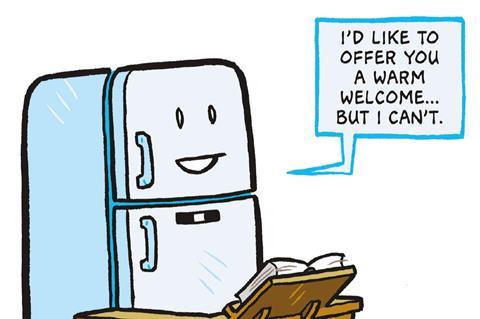
I’ll be honest. Until now, I’ve felt a little smug about the rise of Artificial Intelligence.
I know a lot of smart people are worried about the possibility of robots taking over the workforce and rendering us their slaves (or pets, depending on your level of optimism) but I honestly thought my job was safe for two reasons. Firstly, I’m an artist (and that surely requires a soul) and, secondly, I make spiritual art. You can’t do that without a spirit, right?
Unfortunately, it turns out my job security is indeed under threat, just like everyone else’s. Lewis Capaldi’s Instagram account has recently demonstrated that AI can do a pretty decent impression of Harry Style’s singing voice (or anyone else’s, for that matter) and a German church has allowed ChatGPT to coordinate their service.
It seems that technology can, in fact, do my job. Cue an existential crisis and the mass unplugging of any computer, fridge or toaster that might possibly have an internet connection.
But, more seriously, there’s a profound question that all of this has caused me to mull over. And it isn’t so much whether or not AI is sufficiently human, but whether or not I am.
The megachurch model and worship music industry (of which I am a part) have been noticeably preoccupied with event programming for as long as they’ve existed. Digital countdown timers bleep at me angrily if I sing a second longer than scheduled. Prayers and sermons are rehearsed and performed verbatim across multiple services. Lighting and video cues electronically conduct the flow of service.
I don’t mean to moralise any of this. There are obvious benefits to having a well-planned and executed service. The question it raises is whether or not this technology is actually making us more robotic. Are these still just tools we use to shape our services, or are the tools shaping us? Once we have shifted towards a goal of mechanical precision, of course AI is going to be better at it than us. And it’s hardly fair to call an AI service ‘soulless’ if we’re not willing to hold ourselves to the same standards.

Before considering what the future of the Church should look like in our ever-increasingly digital world, we should revisit our history. Until very recently, church was characterised by up-close-and-personal, embodied and entangled community. In previous decades, pastors didn’t post social media content or record podcasts – they showed up with a lasagne when you were sick. Church congregations knew each other intimately. And the Sunday morning service was a focal point not because of its slick presentation and exact timings, but because of the rich relationships of the people involved.
So, what’s the answer to this digital revolution? My view is that we should let technology, including AI, do what it does best – streamline efficiency and solve logistical problems. But we must simultaneously lean into developing our humanity and what we do best: pursuing that intangible, holy and utterly inefficient thing we call church family. Because without those lasagnes, all the countdown timers in the world are utterly meaningless.






































No comments yet